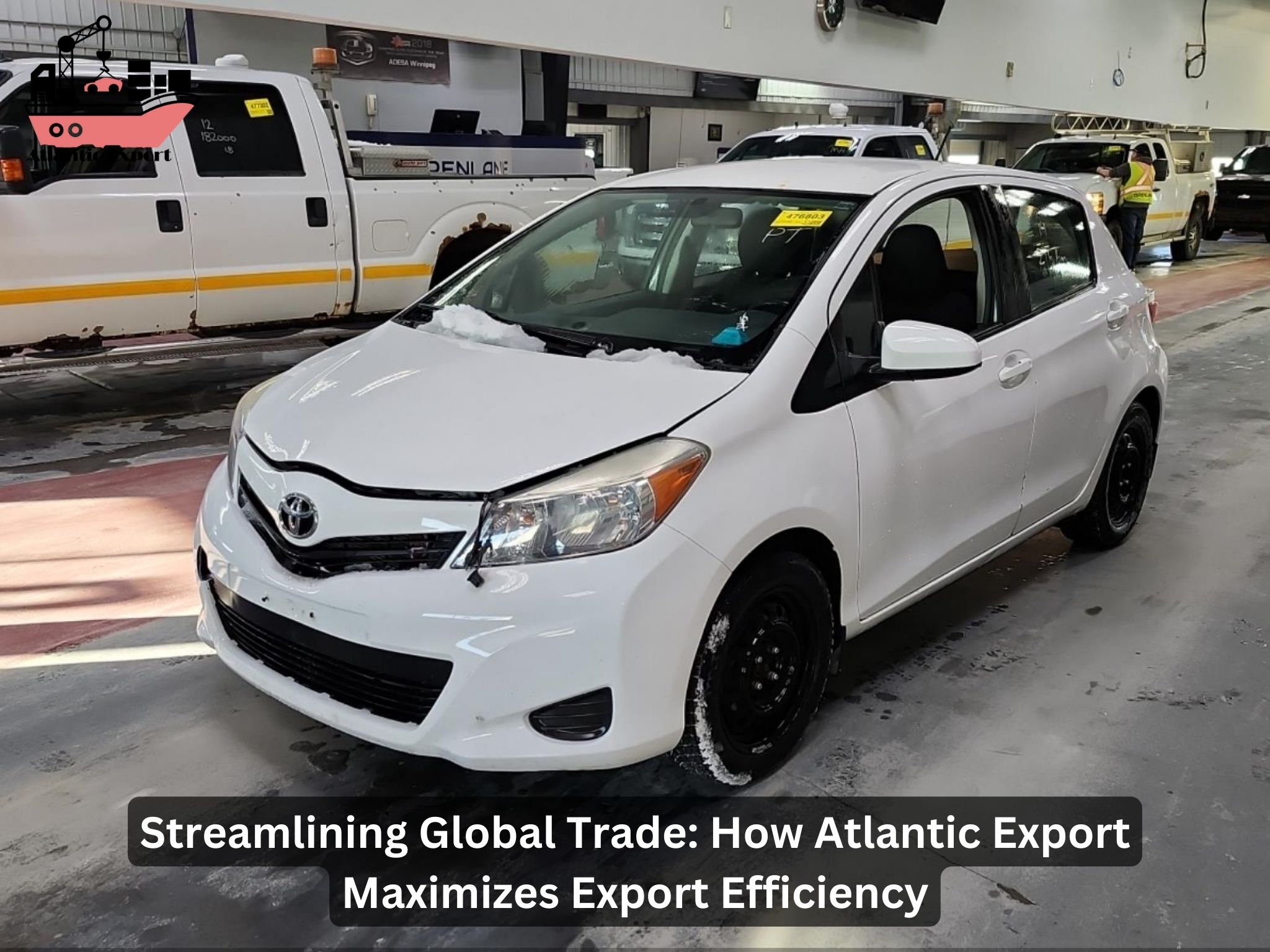In today’s rapidly evolving landscape, businesses face an increasingly complex web of global markets, shifting regulations, and dynamic customer expectations. To thrive, companies must adopt strategies that enhance export efficiency, streamline supply chains, and leverage innovative technologies to stay competitive. At Atlantic Export, we understand the critical role that export performance plays in sustaining long-term growth and global market penetration.
The Growing Importance of Global Trade and Supply Chain Resilience
Global trade continues to be the lifeblood of the international economy, but as markets expand, so do the challenges. Supply chains are becoming more intricate, with companies relying on multiple suppliers across diverse geographies. This complexity necessitates robust risk management practices and supply chain optimization strategies to mitigate disruptions and ensure smooth operations.
By integrating data-driven analytics and real-time monitoring, businesses can gain valuable insights into their logistics networks. Tools like Expensify and Mastercard facilitate streamlined payments and online transactions, enhancing financial transparency and reducing administrative overhead.
Leveraging Technology and Innovation for Export Success
Embracing technological advancements is no longer optional but essential. From Internet of Things (IoT) devices tracking shipments to artificial intelligence (AI) optimizing routes, innovation is reshaping global trade. Atlantic Export champions the adoption of new technologies to improve export performance and supply chain resilience.
Companies can harness digital marketing and e-commerce platforms to access new markets, while blockchain technology enhances information security and transparency. These innovations empower businesses to adapt to market changes swiftly, ensuring sustained global competitiveness.
Strategic Export Management and Compliance
An effective export strategy involves meticulous planning and adherence to customs regulations and trade facilitation processes. Understanding the intricacies of tariff costs, non-tariff barriers, and evolving U.S. tariff policies is crucial to maintaining compliance and avoiding financial penalties.
Implementing internal controls and corporate governance frameworks helps businesses navigate the complexities of international trade. Atlantic Export provides expert guidance on managing cross-border transactions, ensuring that companies can capitalize on free trade agreements and other strategic opportunities.
Sustainability and Ethical Sourcing in Global Markets
Sustainability is an emerging pillar of global commerce, with consumers and regulators alike prioritizing environmentally and socially responsible practices. Companies must integrate sustainable sourcing strategies, invest in clean energy, and adopt recycling and carbon offset initiatives to future-proof their operations.
Moreover, aligning with Environmental, Social, and Governance (ESG) principles enhances brand reputation and opens doors to environmentally conscious markets. By championing sustainability, businesses not only contribute to a healthier planet but also gain a competitive edge in the evolving global landscape.
Seizing Opportunities in Emerging Markets
Emerging economies present immense growth opportunities for businesses willing to expand their horizons. However, venturing into international markets requires thorough market research, adaptability to local regulations, and an understanding of regional consumer preferences.
Participation in global trade events, fostering relationships with local suppliers, and leveraging valuable insights from industry reports can empower companies to make informed market entry decisions. Atlantic Export supports businesses in identifying lucrative opportunities and crafting entry strategies that align with long-term growth objectives.
Optimizing Logistics and Reducing Lead Times
Efficient logistics management is a cornerstone of successful exporting. Companies must optimize shipping routes, invest in sea freight and air cargo solutions, and maintain agile supply chains to reduce lead times and enhance customer satisfaction.
By collaborating with reliable logistics providers and integrating predictive analytics, businesses can anticipate disruptions, reroute shipments, and maintain service continuity. Atlantic Export partners with companies to design resilient logistics strategies, ensuring products reach international markets promptly and cost-effectively.
Empowering Workforce and Building Organizational Agility
A skilled and adaptable workforce is integral to navigating the complexities of global trade. Investing in employee training programs, promoting information security, and fostering a culture of innovation equips teams to handle evolving export challenges.
Moreover, nurturing employee retention through competitive compensation, career development opportunities, and a supportive work environment enhances organizational stability. Atlantic Export advocates for holistic talent management strategies that drive both individual and collective business success.
The Future of Export in a Globalized Economy
As global supply chains evolve, businesses must adapt to changing regulations, market dynamics, and technological disruptions. By implementing future-proof strategies, companies can maintain global competitiveness and ensure long-term export success.
Key Predictions for Global Export Markets
- Increased Use of AI and Machine Learning: AI-driven analytics will enhance decision-making in trade function and supply chains.
- Rise of Sustainable Trade Practices: Governments and corporations will emphasize carbon offsets, renewable energy, and post-consumer materials.
- Expansion of Digital Transactions: The dominance of online transactions will reshape export logistics and customer expectations.
- New Trade Agreements and Tariff Adjustments: The evolution of global trade agreements and tariff policies will create new opportunities and challenges.
Conclusion: Future-Proofing Your Business Through Export Efficiency
In an interconnected world, businesses must proactively enhance their export efficiency to thrive amid global uncertainties. By embracing technology, prioritizing sustainability, optimizing logistics, and fostering strategic agility, companies can not only weather market disruptions but emerge stronger and more competitive.
Atlantic Export stands as a trusted partner in this journey, empowering businesses with the knowledge, strategies, and insights needed to conquer international markets. Together, we can shape a future where export excellence drives sustainable growth and global prosperity.
FAQs
1. What are the key factors influencing export efficiency?
Export efficiency depends on supply chain management, regulatory compliance, cost optimization, logistics coordination, and market intelligence.
2. How can businesses ensure regulatory compliance in global trade?
Companies should stay updated on customs regulations, trade agreements, and tariff policies while leveraging compliance automation technologies.
3. What role does technology play in export strategy?
Technology enhances trade facilitation, data analytics, blockchain transparency, IoT logistics, and AI-driven market forecasting.
4. How can businesses reduce export risks?
Implementing risk management strategies, diversifying supply chains, and leveraging insurance solutions can minimize export risks.
5. What are the best sustainability practices for exporters?
Companies should focus on sustainable sourcing, carbon offset initiatives, clean energy adoption, and eco-friendly logistics solutions.









